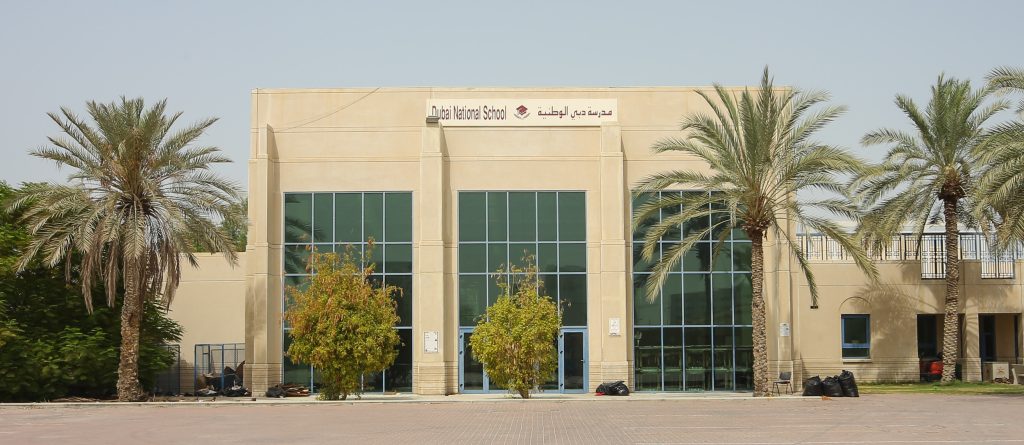Why Does Enrolling Your Child in a Dubai Public School Feel Like Solving a Puzzle? Let’s Simplify It.Navigating Dubai’s public school system can feel overwhelming, especially for new residents. Between understanding local regulations, deadlines, and cultural nuances, parents often wonder where to start. But don’t worry—this guide breaks down every step, from paperwork to practical tips, tailored for Dubai’s unique landscape. Let’s dive in.
KHDA (KNOWLEDGE AND HUMAN DEVELOPMENT AUTHORITY)
Your Gateway to Dubai’s Education System
Every enrollment journey begins with the KHDA, Dubai’s regulatory body for education. They oversee school inspections, curriculum standards, and student welfare. To apply, create an account on their online portal (KHDA.gov.ae), where you’ll submit documents, track applications, and access fee schedules. Pro tip: Applications for the academic year (starting September) open in March. Late submissions risk limited availability.
AL BARSHA PUBLIC SCHOOL
Decoding the Document Checklist
Gathering paperwork is critical. For Emirati families, a family book and child’s passport suffice. Expats need a residency visa, birth certificate (attested by the UAE Embassy and Ministry of Foreign Affairs), and immunization records. Transfer certificates from previous schools must be stamped by the UAE Embassy. Missing a step? Delays can push enrollment by months.
DUBAI MODEL SCHOOL
Understanding Fee Structures and Hidden Costs
Public schools offer free education for Emiratis, but expats pay annual fees ranging from 6,000 to 12,000 AED. Additional costs include uniforms (500–800 AED), textbooks (300 AED), and transportation (3,000–5,000 AED). Budget for extracurricular activities like robotics clubs or swimming, which add 1,000–2,000 AED yearly. www.few.ae editor tip: Some schools offer sibling discounts—always ask!
MINISTRY OF EDUCATION CURRICULUM
Balancing Arabic and International Standards
Dubai’s public schools follow the Ministry of Education curriculum, emphasizing Arabic, Islamic studies, and UAE social studies. English is taught as a second language, but subjects like math and science may blend Arabic and English. For non-Arabic speakers, schools provide foundational classes. Cultural tip: Friday is a weekend, so schools close Thursday afternoon for Islamic prayers.

AL AHLIYA SCHOOL TRANSPORT SERVICES
Navigating School Buses and Safety Norms
Most schools partner with registered transport providers. Buses have GPS tracking, female attendants, and regulated pick-up times. Annual fees average 3,500 AED, with routes covering major areas like Jumeirah and Deira. Prefer private transport? Carpooling apps like Smart Bus offer shared rides. Safety note: Children under 4 must use car seats—fines for non-compliance reach 400 AED.
DUBAI HEALTH AUTHORITY (DHA)
Medical Requirements You Can’t Overlook
Before enrollment, children must submit a vaccination record aligned with UAE’s schedule. Missing doses? Visit DHA clinics for catch-up shots. Schools also mandate health screenings for vision, hearing, and BMI. For students with chronic conditions like asthma, submit a doctor’s management plan. www.few.ae editor reminder: Keep digital copies of medical records—school nurses often request them.
AL WARQA’A PRIMARY SCHOOL
Special Needs Support and Inclusion Policies
Dubai public schools adhere to federal Law 29/2006, ensuring inclusive education. Parents of children with disabilities must submit diagnostic reports (translated to Arabic or English) during enrollment. Schools assign shadow teachers or therapists for individualized plans. Notable fact: Over 30% of Dubai’s public schools now have sensory rooms and wheelchair access.
DUBAI CENTRAL SCHOOL REGISTRY
Managing Waitlists and Alternative Options
Popular schools like Dubai Model School often fill up by May. If waitlisted, explore alternatives in less crowded zones like Hatta or Al Lisaili. Alternatively, consider semi-government schools like Al Ittihad Private School, which follow the national curriculum but have more flexible intake. Patience pays—many families secure spots by August due to last-minute withdrawals.
CULTURAL ADAPTATION TIPS
Helping Your Child Thrive in a New Environment
Dubai’s schools celebrate UAE National Day, Ramadan, and Arabic Heritage Week. Non-Muslim students aren’t required to fast but should respect cultural norms. Dress codes are strict: uniforms must cover knees and shoulders. For expat kids, joining after-school Arabic clubs eases integration. Fun fact: Many schools host “majlis” events where students discuss traditions over dates and karak tea.
FINAL STEPS AND PROACTIVE PLANNING
Once enrolled, attend orientation sessions to meet teachers and tour facilities. Download the Dubai Schools app for real-time updates on grades, events, and bus delays. Remember, public schools prioritize Arabic proficiency—supplement learning with tutoring if needed. With preparation, your child will thrive in Dubai’s dynamic academic environment. Ready to take the plunge? The perfect school year awaits.
